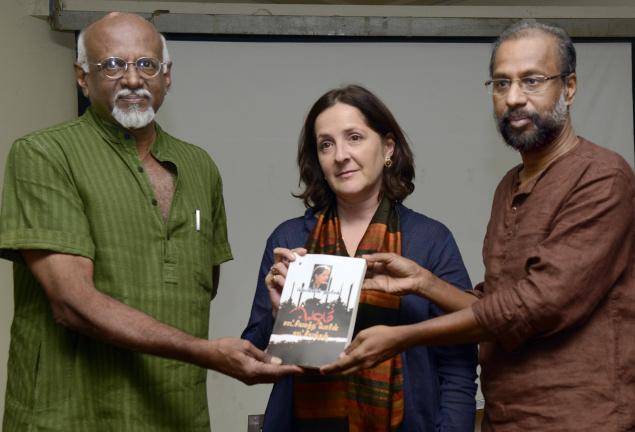· T+

It’s an account of the last phase of war in Sri Lanka which left thousands dead
The sheer intensity, scale and speed of the killings in the last stage of the civil war in Sri Lanka in 2009 were unprecedented in recent times, according to Frances Harrison, journalist, and author of ‘Still Counting the Dead,’ an account of the turbulent phase that left thousands dead.
She was referring to the huge death toll (estimated to be 40,000 and 70,000 according to two UN reports) that happened within 120 to 130 days inside the ‘No Fire Zones’ because of the use of artillery, mortars, rocket launchers and supersonic jets by the Sri Lankan armed forces. Ms. Harrison was speaking at a function at which a Tamil translation of her book was launched.
Quoting a World Bank document, she said one lakh persons were missing between 2006 and 2010 and there had to be an explanation on where these people are. Referring to her interviews with 10 persons mentioned in the book and the countless others she had spoken to, Ms. Harrison said most of them were broken and suicidal after seeing the destruction of lives around them. Reading excerpts from the book, Ms. Harrison described how a priest lost his life due to delay in getting treatment and through a journalist’s account, the final moments of a starving mother who died while breast-feeding her baby.
Noted art critic and writer Sadanand Menon, who received the first copy of the translated work at a function here on Saturday, said the Sri Lankan State had to be made accountable for the horrible crimes. As there was a possibility that Sri Lanka might get away with “war crimes,” Tamils in the mainland must read, circulate and discuss Ms. Harrison’s “testimony” of the final ‘Eelam’ war through the voices of members of different sections of society who were witness to it, using a “dispassionate” narrative, he said.
Poet Cheran, read from his poetry collection Kaadatru, written during the final stages of the Eelam war, and presented the first copy of the translated book published by ‘Kalachuvadu’. Four other poets recited poems on the Eelam struggle and the horrific crimes committed by the Sri Lankan State.